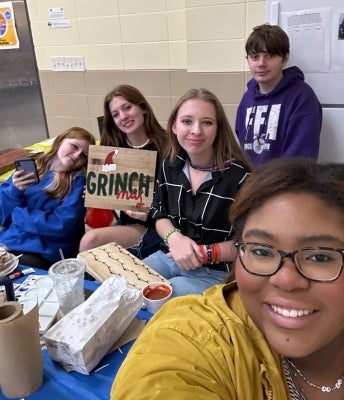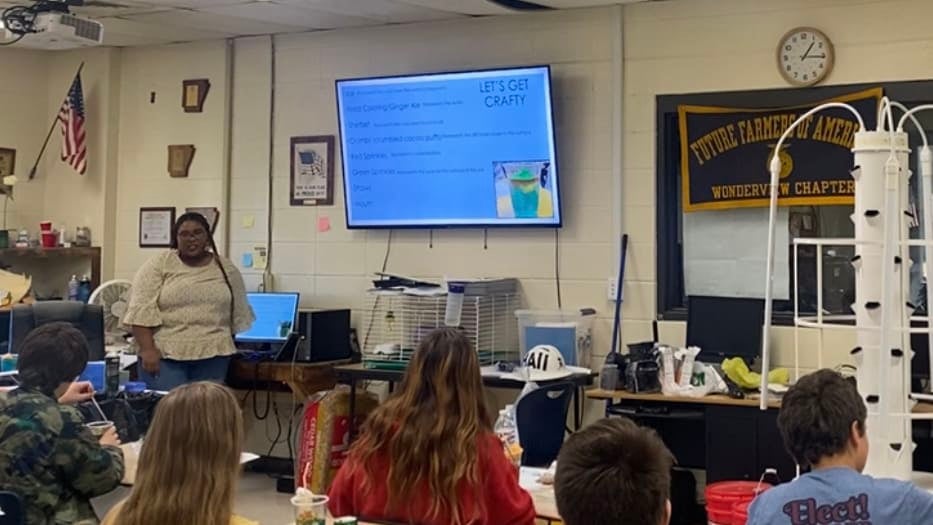African-American communities developed innovations that revolutionized farming — corn and cotton planters, crop rotation and refrigerated transportation, to name a few. Nadea Massey, an agriculture teacher and FFA advisor at Bay High School in Bay, Ark., knows those aren’t the associations most African-American students have with farming.
“Because of the history [of slavery] connected to agriculture, a lot of African-American students don’t want to take agriculture classes,” Massey says. “There can be a negative stereotype associated with agriculture.”
Massey wants to create an environment where everyone feels welcome in agricultural education classes and as a member of the Bay FFA Chapter. From her perspective, this begins with students seeing her — an African-American woman — in the classroom. “They want to see others that look like them,” she says.
Blazing Her Own Trail
Currently, Massey is one of two African-American agriculture teachers in her state. She grew up in Arkansas and is an alumna of Bentonville FFA Chapter, where she recalls, “I can count on one hand how many other African-American members there were.”

As a first-year educator, Massey wants to create an environment where her students always feel accepted, welcomed and supported.
Massey, who started her career as an educator and advisor this year, wants to ensure her students can pursue their passions in the industry. Each day, she seeks to create an engaging learning environment that includes lots of hands-on activities.
For example, Bay FFA members have dissected chickens, demolished and rebuilt garden beds, tweaked a hydroponic system, added fish to the greenhouse and welcomed a new goat to the campus farm. According to Massey, these interactive opportunities create stronger connections to the material students are learning than reading a textbook or looking at PowerPoint presentations.
Creating Space for All
Although Massey works to create interactive lessons and foster a welcoming atmosphere, she admits that her role as a young, African-American woman in an agriculture classroom can be challenging.
However, finding common ground and exploring new ways to connect with students has helped Massey overcome stereotypes. Even on the hardest days, she maintains a commitment to educating students about the importance of agriculture and the power of belonging.
“Agriculture is so important, and everyone has a place in it,” she says. “I want to make an impact, so people feel comfortable and know the importance of being in a place, a community and a club they truly have a passion for.”
Learn about our commitment to creating an FFA for All experience at ffa.org/ffa-for-all/.












